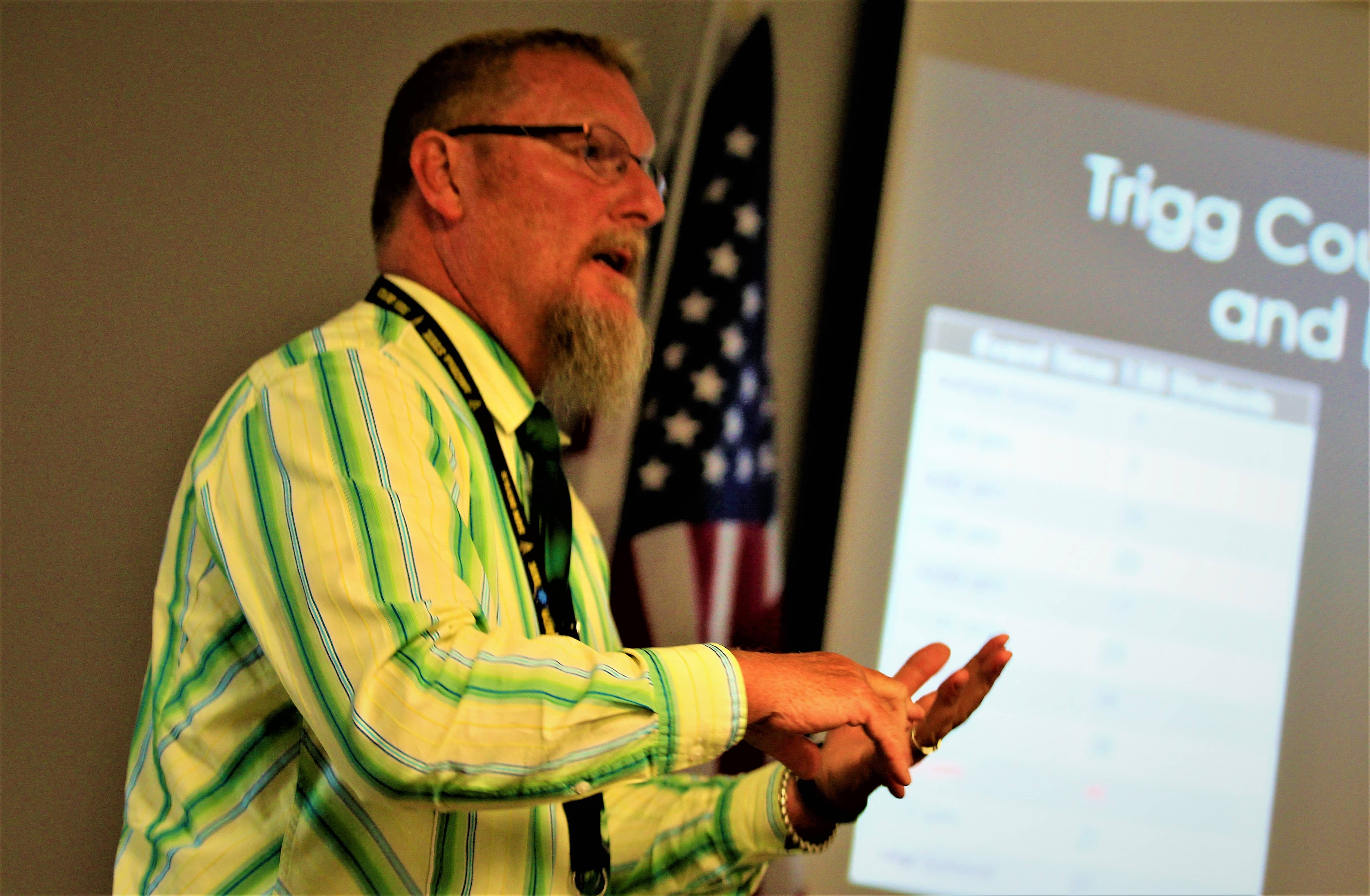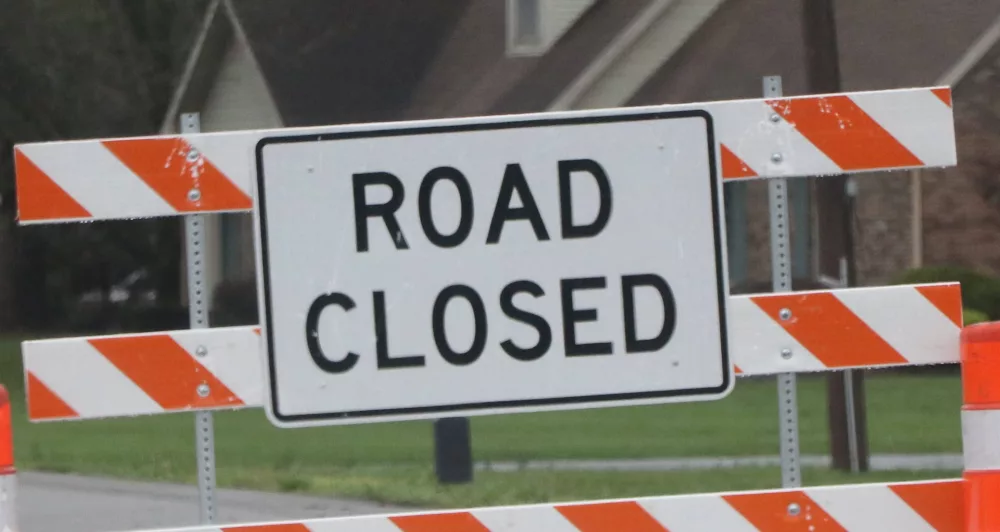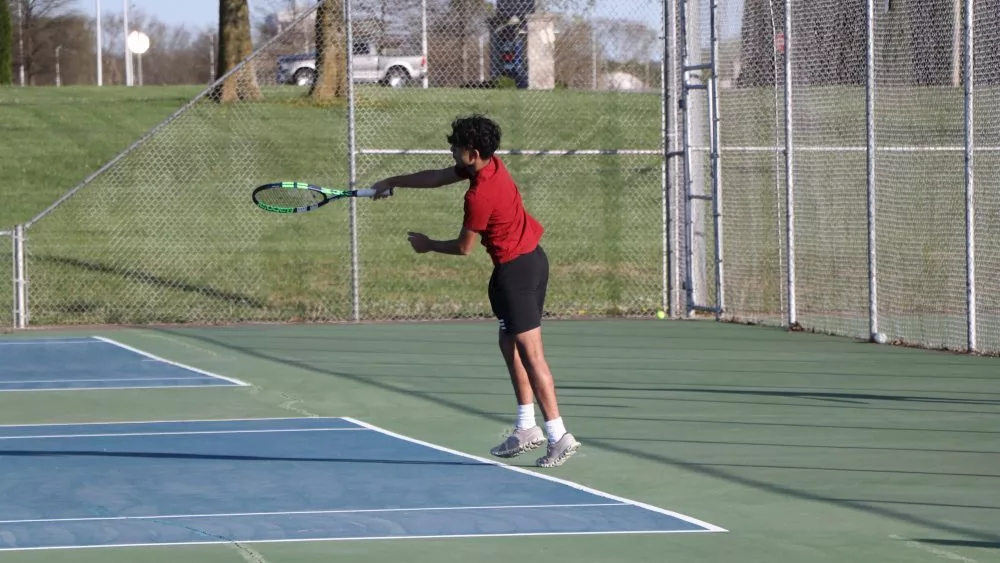
In what was an extensive and comprehensive review of the district’s disciplinary report for 2021-22, Trigg County Schools Director of Personnel and Student Services James Mangels used Thursday evening’s board meeting to dissect concerns and possible solutions for poor behavior patterns across the campus.
For the Trigg Primary School, 37 of its 404 students accounted for 69 office events. That’s 9% of their population, with 75% of the incidents labeled as “disrespectful behavior” that led to in-school removal 45% of the time. Most infractions occurred in March and April, on Tuesdays and typically after lunchtime.
For the Trigg County Intermediate School, 69 of its 390 students generated 110 office events. That’s 18% of its population, with 50% of referrals described as “disrespectful behavior.” More than 80% of these incidents led to in-school removal, with the most problems arising in March, on Wednesdays and after 1 PM.
For the Trigg County Middle School, 195 of its 443 students went to the office on 595 offenses. Of those conduct breaches, 208 were write-ups for “disorderly conduct.” And while some students are sent straight to the office for major reasons, Mangels noted TCMS uses classroom mediation often before a call to the office is needed.
The more startling realization, however, is that 44% of the middle school visited the office at least once this past year, with 419 issues leading to in-school removal, and 361 earning a detention lunch. Most of the issues occurred during or after lunch, and in the classroom.
For the Trigg County High School, 130 of its 608 students generated 271 infractions — 48 of which were for “disrespectful behavior” and 27 for “fighting.”
Mangels said many of those fights were multiple reports from the same group of students, meaning there were likely fewer fights than realized, but that it was still alarming. He added that the district conducted 14 tribunals for high school students in considerable trouble, with a 15th likely on the way following an undisclosed incident that happened on the last day of school.
This process, Mangels added, is thorough.
More than 70% of resolutions for behavior concerns in the high school resulted in some combination of in-school or out-of-school suspension. November was the busiest month, Tuesdays and afternoons the most frequent time stamps, and more than 40% of these write-ups came from classrooms.
So what is the root cause of some of these frequent infractions? It’s not easy to pinpoint. Mangels said there was no comparisons of data for the 2019-20 and 2020-21 school years because of COVID-19 — where office discipline came only during extreme circumstances, and students were in and out of virtual learning.
Moving forward, Mangels said it would be beneficial to review this data monthly or every other month, in order to get a better grasp of trends.
Among his top suggestions, Mangels said it was time to “come back” to better implementation of “Positive Behavioral Interventions and Supports.”
Mangels also noted that student-teacher engagement needs to improve in each direction — both allowing a student’s voice to be heard, and a teacher’s voice holding some respected authority.
Full data on all infractions can be found here: Discipline-Data-Summary.





